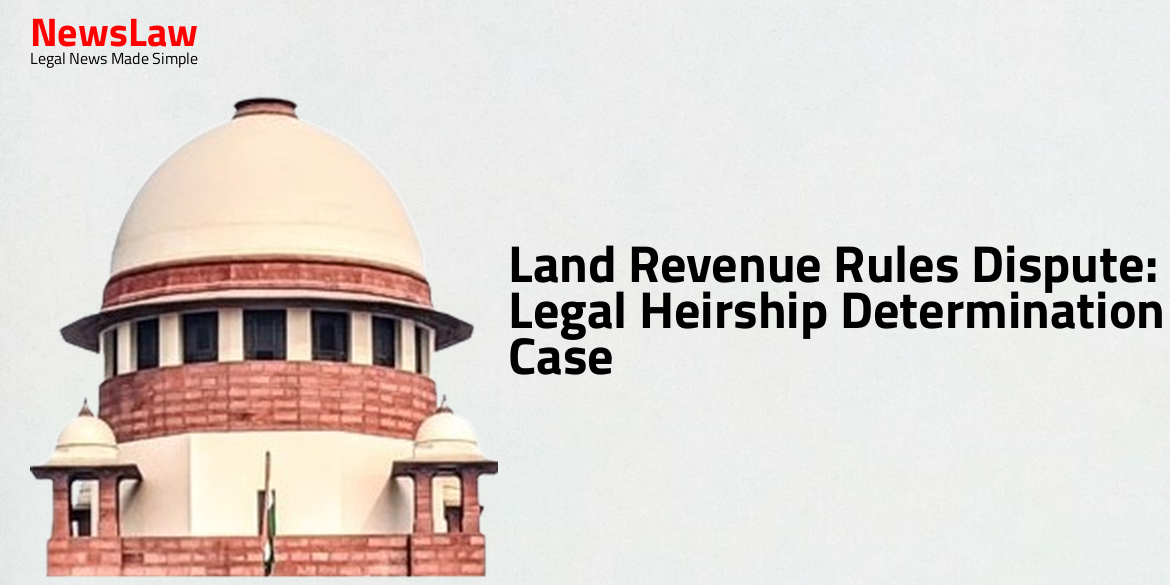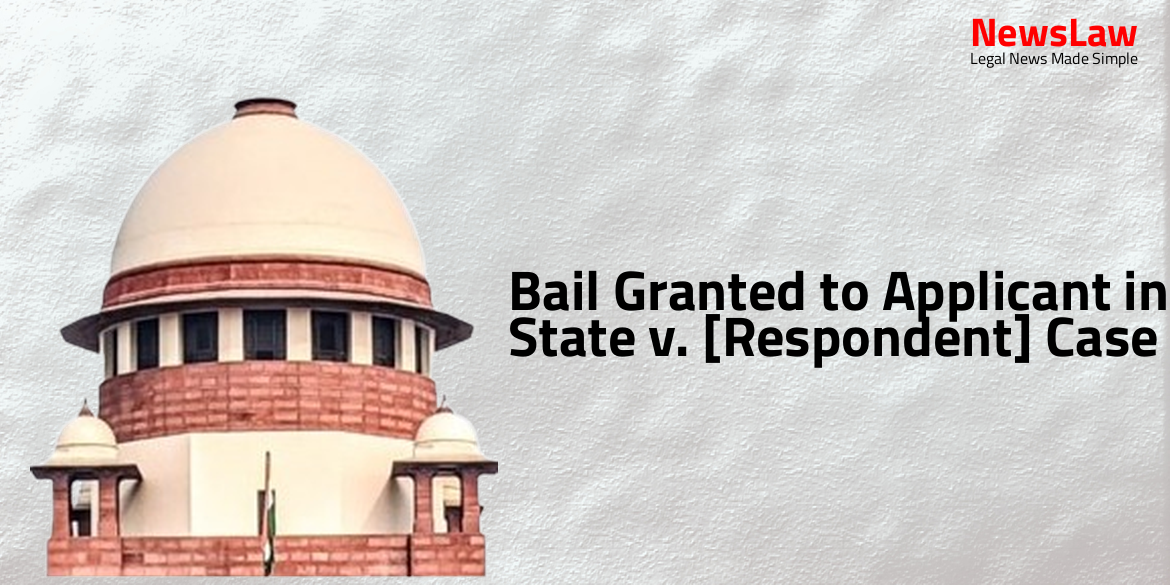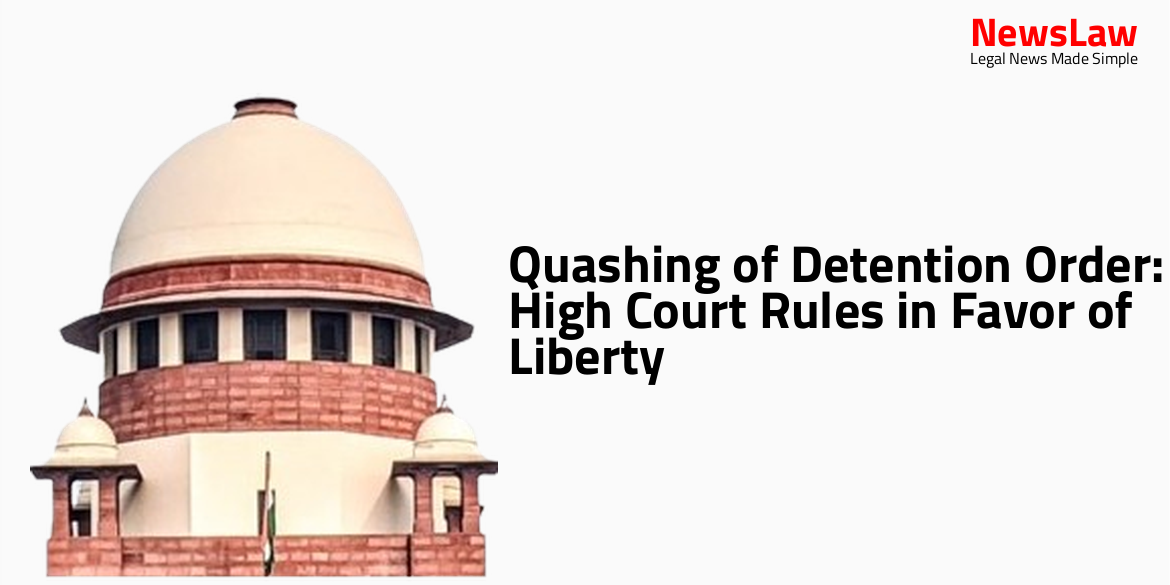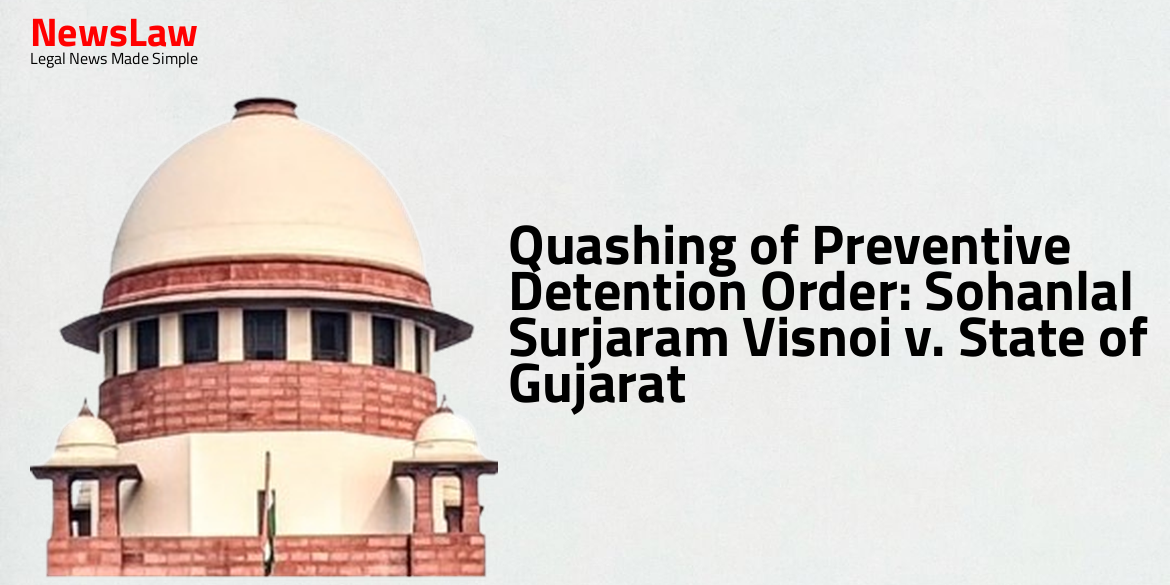In a recent case before the Gujarat High Court, a crucial judgment was delivered concerning a dispute under the Land Revenue Rules. The case focuses on determining legal heirship in a land matter, where the decision will have significant implications for the parties involved. Stay informed as we delve into the details of this important legal battle.
Arguments
- The petitioner challenges an order passed by the learned SSRD dated 25.06.2014 under Rule 108(6A) of the Land Revenue Rules.
- The Deputy Collector rejected the application stating that the petitioners need to establish themselves as legal heirs of the original grantee Harijan Kapura Bechara.
- The delay in the matter being brought to court after approximately a decade was questioned by the Court.
- Learned advocate relied on a document dated 05.10.2023 stating that the papers of the original application before the Deputy Collector were not traceable, leading to the delay.
Analysis
- The concept of estoppel governs the underlying principles in the case.
- The petition was dismissed as withdrawn in 2007 with no explanation given.
- The delay in approaching the court was not justified, and no reasons were provided in the petition or perusal.
- The petitioners had applied for re-grant of land before the Deputy Collector in 2009, disregarding objections filed by the respondents or their predecessors-in-interest.
- There was a delay of nearly three decades in filing an application before the Settlement Officer, which was not maintainable after final record of rights was published in 1962.
- The delay and nature of acts during the interval are essential factors to be considered in cases of laches and acquiescence.
- The party’s conduct, acquiescence, and change in position during the delay can affect the grant of relief by the court.
- Unreasonable delay or negligence in pursuing a claim for equitable relief causing prejudice to the other party is a key factor.
- The delay of 46 years in filing the writ petition after finalization of the record of rights was deemed highly belated and unjustifiable.
- Stale claims are not to be adjudicated, and non-interference may be preferred to avoid grave injustice.
- The delay in approaching the court after the order of the Special Secretary was approximately nine years, indicating negligence.
- The court referred to the State of Orissa vs. Lakshmi Narayan Das case regarding the importance of prejudice in such matters.
- The order of the Deputy Collector in 2014, not interfered with earlier, reflected the vested land status from 1955, denying the respondents any relief.
- Based on the law laid down by the Supreme Court and lack of reasonable cause for condoning the delay, the application was rejected.
- In the case of Senior Divisional Manager, Life Insurance Corporation of India Ltd. and others v. Shree Lal Meena, it was found that the appellant remained silent for years together and approached the Court seeking relief after a delay of over two years.
- In the case of Bharat Coking Coal Ltd. and others v. Shyam Kishore Singh, the issue of delay and laches was considered, leading to the dismissal of a petition filed belatedly seeking a change in the date of birth in the service record.
- The issue of delay and laches was examined in Union of India and others vs N. Murugesan and others, where neglecting to act as required by law can stand in the way of obtaining relief or remedy.
- Relief can be refused to a person putting forth a stale claim due to delay and laches, as observed by the Court in various cases.
- The Court emphasized the importance of expeditiously approaching for relief, and delay and laches were considered relevant factors in determining whether a claim deserves indulgence.
- In various cases such as State of Jammu & Kashmir vs R. K. Zalpuri, State of Uttaranchal vs Sri Shiv Charan Singh Bhandari, and others, delay and laches were crucial considerations in deciding on disputes brought before the Court.
- Common law principles and statutes highlight the significance of timely recourse to legal remedies, with an expectation for reasonable expedience in filing a petition under Article 226 of the Constitution of India.
- The Court reiterated that the power to issue a writ under Article 226 of the Constitution is discretionary, and inordinate delay without justification may lead to the Court declining to grant relief.
- The principles of delay, laches, and acquiescence were seen as interconnected and vital in determining the appropriateness of entertaining a legal dispute at a belated stage.
- Courts are expected to exercise equitable judgment while considering delay and laches, with a preference for expedient and diligent pursuit of legal remedies.
Case Title: KAPURAJI SHANKARJI GARODA Vs. STATE OF GUJARAT
Case Number: R/SCA/7876/2024



